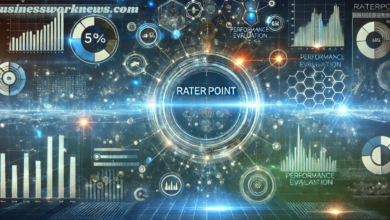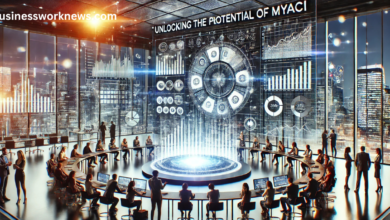Key Takeaways
- Recognizing employee achievements boosts morale and productivity.
- Thoughtful award programs can enhance workplace culture.
- Different award types can address diverse recognition needs.
- Regular feedback and appreciation foster a positive work environment.
Table of Contents
- Introduction to Employee Recognition
- Understanding the Benefits of Employee Awards
- Different Types of Employee Awards
- Best Practices for Implementing Award Programs
- How Awards Enhance Team Dynamics
- Common Challenges and Solutions in Award Programs
- Real-Life Examples of Successful Award Programs
- Future Trends in Employee Recognition
Introduction to Employee Recognition
In today’s fast-paced and dynamic work environment, employee recognition is a “nice to have” and a fundamental component of any successful business strategy. Recognition is integral in boosting employee morale, enhancing productivity, and fostering a workplace culture of happiness and positivity. Thoughtful employee awards by Fineawards.com are a significant tool in weaving a recognition culture into the organizational fabric. Recognition programs celebrating individual and team contributions are crucial for fostering a productive work environment. When employees feel valued, they are more engaged and loyal, which reduces turnover and attracts top talent. Integrating appreciation into company culture enhances overall success and collaboration.
Understanding the Benefits of Employee Awards
The advantages of employee awards go beyond merely acknowledging task completion. A robust recognition program can increase employee engagement, satisfaction, and sustained performance. According to the Harvard Business Review, companies that prioritize and frequently celebrate employee achievements often experience elevated levels of productivity and enhanced workplace morale. Recognizing employees tangibly reinforces desired behaviors and performance outcomes, meaning that employees are more likely to remain motivated and committed to organizational goals. Furthermore, recognition can boost employees’ emotional well-being, contributing to a more vibrant corporate culture where innovation and creativity are encouraged.
Different Types of Employee Awards
The effectiveness of an awards program often hinges on its ability to cater to varied contributions and preferences within an organization. Many companies offer a spectrum of awards, ranging from peer-nominated recognitions and longevity-based acknowledgments to performance-driven incentives. Each category addresses different aspects of employee contributions, allowing organizations to celebrate success cohesively and comprehensively. For instance, peer-nominated awards emphasize camaraderie and team spirit, while performance incentives highlight individual excellence and dedication. Organizations should customize their awards to resonate with their workforce’s diverse needs and cultures, ensuring that recognition is meaningful and motivational to all involved.
Best Practices for Implementing Award Programs
Implementing an impactful award program requires more than mere planning; it necessitates a strategic approach that aligns with organizational values and objectives. According to the Society for Human Resource Management guidelines, incorporating best practices such as clearly defined criteria, inclusivity, and consistent feedback mechanisms can significantly enhance a recognition program’s effectiveness. Clear communication about the criteria and selection process ensures fairness and transparency, while inclusivity guarantees that the program resonates with everyone. Additionally, organizations should focus on maintaining a feedback loop where employees can share their perceptions and suggestions, allowing for continuous improvement and evolution of the program to meet the dynamic workforce’s expectations and needs.
How Awards Enhance Team Dynamics
Awards can transform individual perspectives and foster a sense of unity and collaboration within teams. They provide a structured platform for celebrating collective and individual achievements while reinforcing a culture of mutual respect and appreciation. Recognizing both individual and team successes encourages a mindset where employees understand the value of teamwork and collaboration, contributing positively to team dynamics. When employees feel part of a team that values and appreciates each other, cooperation, productivity, and innovation flourish. This, in turn, enables teams to navigate challenges more effectively and deliver on strategic objectives with greater synergy and efficiency.
Common Challenges and Solutions in Award Programs
Despite recognition programs’ advantages, several challenges may arise, including perceptions of favoritism or biases in the recognition process. Organizations must ensure transparency in the nomination and selection processes to mitigate these issues, clarifying how decisions are made. Diversifying the pool of award candidates and ensuring inclusivity in recognition can address these challenges. Fostering open dialogues and soliciting employee feedback can enhance transparency, showcasing the organization’s commitment to fair and equitable recognition practices.
Real-Life Examples of Successful Award Programs
Considerable insights can be gleaned from organizations successfully integrating award programs into their corporate culture. Real-life instances from various sectors, including technology and retail, highlight how tailored recognition initiatives can boost morale and engagement. These programs have effectively aligned their recognition strategies with their core corporate values, allowing them to maintain consistency and authenticity. As organizations continue to evolve, adapting these successful examples can serve as a blueprint for developing recognition programs that resonate deeply with their unique workplace cultures and values.
Future Trends in Employee Recognition
The landscape of employee recognition continues to evolve alongside technological advancements and changing workplace dynamics. The future likely holds more personalized and technology-driven recognition solutions capable of responding dynamically to employee contributions and preferences. Innovations such as virtual reality recognition events and personalized digital thank-yous can offer novel ways to celebrate employee successes. As organizations increasingly adopt remote and hybrid work models, these futuristic approaches enable timely and meaningful recognition, underscoring the importance of appreciation, regardless of where and how employees work.




